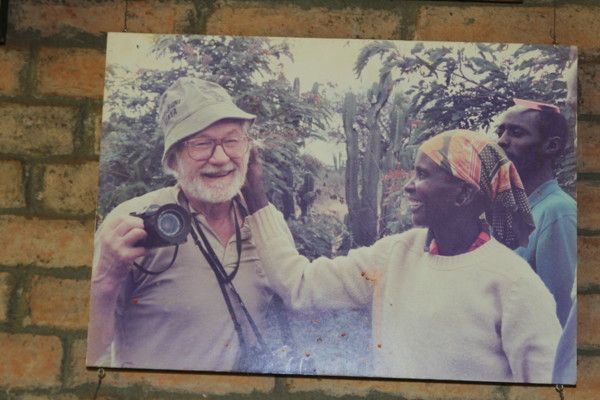Vi Agroforestry began in 1982 with an idea by journalist Sten Lundgren, who urged readers of the Vi magazine in Sweden to donate money for tree planting in Africa rather than send flowers for special occasions. The project gained early momentum, with funds sent to Kenya in 1983 to address deforestation. However, the initial efforts struggled as local farmers were not engaged, and the planted seedlings failed.
Realizing the need for a more effective approach, professional consultants were brought in, and Vi Agroforestry evolved from simply distributing seedlings to becoming a formal NGO in Kenya. By 1987, the organization had established its own operations, including the Olof Palme Agroforestry Centre, and expanded to Uganda, Tanzania, and Rwanda.
Through the years, Vi Agroforestry adapted to focus more on educating farmers in agroforestry techniques, reducing reliance on Swedish funding, and empowering local communities. One significant shift was the creation of savings and loan groups, which increased economic opportunities and gender equality. Additionally, fuel-efficient cookers were introduced to conserve resources.
In 2009, Vi Agroforestry took a new step into climate compensation, signing an agreement with the World Bank to offset carbon emissions through tree planting. As part of this initiative, 50,000 farmers were involved in planting trees that would sequester carbon and support sustainable agricultural practices.
Today, Vi Agroforestry works with local partner organizations to promote agroforestry practices and sustainability across East Africa, while also advocating for national agroforestry policies in countries like Kenya and Tanzania. The organization continues to engage communities and youth, ensuring that sustainable farming is seen as a viable future.
Learn more about our history in our Annual Report from 2019, pages 6-11.
Fast facts
Vi Agroforestry started in West Pokot District, Kenya in 1983 to halt desertification and soil erosion by planting trees. As more funds became available Vi Agroforestry expanded and in 1986 a new project site was established in Trans Nzoia District, with a new project office in Kitale, Kenya. Further programme expansions led to projects established in Masaka, Uganda in 1992, Musoma, Tanzania in 1994, Mwanza, Tanzania in 1999, Kisumu, Kenya 2002, Kigali, Rwanda in 2004 and Kagera, Tanzania in 2005. Operations in Rwanda where phased out in 2022.
Vi Agroforestry is an international non-political, non-religious and non-profit organisation registered in Sweden as a foundation and in Kenya, Uganda and Tanzania as a non-governmental organisation. Its headquarters are situated in Stockholm, Sweden, with a Regional Office in Nairobi, Kenya. Vi Agroforestry presently has country offices in Kitale (Kenya), Kampala (Uganda), and Dar es Salaam (Tanzania) coordinating projects across these countries.
